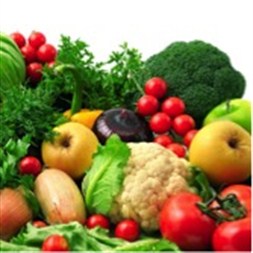After a holiday season of oversized meals and sweet treats, and with the Valentine’s Day candy surge just a few weeks away, many of us have not gotten the nutrients that we need to be fully functioning and feeling great. That’s why our third health resolution for 2015 is to eat right.
While a nutritionist can offer a customized plan to help you eat better and meet your personal dietary needs and restrictions, there are some general eating guidelines that we can all follow to help our bodies. 
1. Stay Hydrated
While people of all ages suffer from dehydration, the issue is most widespread in elderly people. In addition to simply not drinking enough water throughout the day, many older adults are on medications that contribute to fluid loss. As the Baltimore Sun explains, general symptoms of dehydration include weakness, fatigue, confusion and leg cramps. Dehydration that is not treated can become deadly as it can cause a person to suffer from more severe symptoms, often including a partial or total loss of consciousness. John Batson, M.D., explains that one often overlooked benefit to being hydrated is heart health: “If you’re well hydrated, your heart doesn’t have to work as hard,” Batson explains.
As a general rule, if you feel thirsty, you are already dehydrated. So how can you prevent being dehydrated? Drinking more fluids (ideally water) is your best bet for easily rehydrating. But how much to drink? Dr. Batson explains that the amount of water each person should drink is dependent on a number of factors, including health conditions, climatic conditions, clothing, work and exercise intensity and duration. Most experts recommend eight glasses of water (8 ounces each) per day as a general rule.
2. Eat More Fiber
Aside from its often touted ability to help keep us regular, fiber has a lot of great benefits: it can lower your risk for conditions such as heart disease, stroke and diabetes; help you lose weight; and boost your immune system. Health Day explains that while all ages suffer from constipation, the age group with the highest rate of it is the 65+ group. This higher rate in older adults is often attributed to people not eating enough fiber, not getting enough to eat in general or medication.
Luckily, fiber is found in many foods: color-rich fruits, dark green vegetables and whole grains are delicious and easy-to-find fiber-rich foods. Aim to eat 1.5 – 2 servings of fruit, 2 – 2.5 cups of vegetables and 6-7 ounces of whole grains every day.
3. Don’t Overdo the Salt
As we age, our sense of taste and smell become duller, causing food to seem less flavorful. This lack of flavor causes many people to pile on the salt in an effort to make their meals tastier. Because most people already get too much sodium in their diet, this additional salt can cause many health issues. According to the Harvard School of Public Health, high salt consumption can lead to high blood pressure, heart attack, strokes and kidney damage.
If you’re looking to make your food more flavorful while still being healthy, WebMD suggests using herbs, spices, pepper or lemon juice to boost flavor. In addition to making your meals taste great, they also all have their own health benefits.
